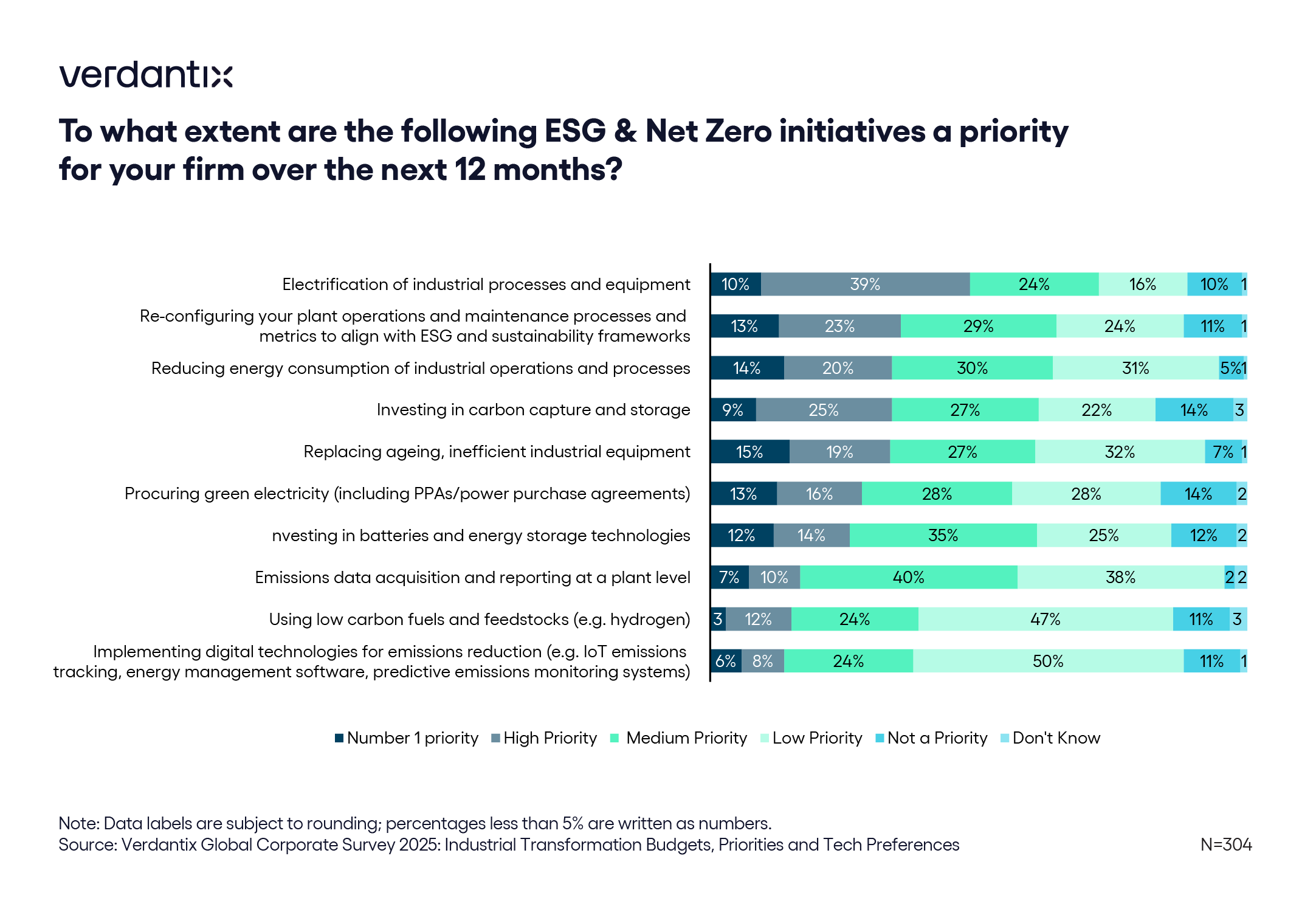The Future Of ESG Success Hinges On Operations And Sustainability Collaboration
Throughout 2025, we expect sustainability transparency to continue to be a key focus for many businesses, particularly large enterprises to whom the EU's CSRD will still apply (despite proposed changes to reporting requirements).
With sustainability leaders focusing primarily on collecting high-quality data and meeting stakeholder expectations, ESG and sustainability strategies have traditionally excluded operations teams and had little impact on their day-to-day activities. Despite this, our 2025 industrial transformation global corporate survey reveals that 36% of decision-makers view reconfiguring plant operations, maintenance and metrics to align with ESG and sustainability frameworks as a ‘number 1’ or ‘high priority’ for the next 12 months – second only to electrification of industrial processes and equipment.
For the majority of these organizations, reconfiguration will involve the adoption of decarbonization technologies such as carbon capture, utilization and storage (CCUS); hydrogen electrolysers; and thermal batteries. It is important to note, however, that these technologies are still in the launch phase and will need significant investment before they become widely commercially available. The most likely scenario is that firms will continue to reduce energy consumption and emissions through improving operational efficiency. Tyre manufacturer Michelin, for example, uses AVEVA PI System to enable operators to monitor and optimize energy consumption, and to standardize and share best practices across plants, leading to a 3-16% reduction in energy use. Asset performance management (APM) solutions from AspenTech and GE Vernova similarly offer modules that connect equipment performance with emissions management and reporting.
At the same time, reshoring and nearshoring trends sparked by lingering supply chain disruptions and tariff wars – as well as electrification and AI megatrends – will drive an uptick in greenfield projects. To attract investment, these developments may seek to align with ESG and sustainability frameworks such as the EU Taxonomy, which provides a standardized classification system aiming to help investors identify the activities that are best aligned with the EU’s environmental goals. Digital twins – such as those offered by AVEVA, Hexagon, Kongsberg and Siemens – will be pivotal to ensure Taxonomy alignment, simulating different design options, processes and energy consumption scenarios. The technology also allows users to optimize operations according to a diverse range of constraints, such as lower energy consumption, carbon emissions and waste. Once operational, digital twins can continue monitoring environmental metrics and identify improvement areas as assets age.
As ESG and sustainability regulations continue to evolve and net zero deadlines approach rapidly, industrial firms must engage both sustainability and operations stakeholders and use a data-driven and process-centric approach to identify opportunities to improve their existing operations and future-proof their investments.

About The Author

Sayanh Alam
Industry Analyst

Lily Turnbull
Senior Analyst





